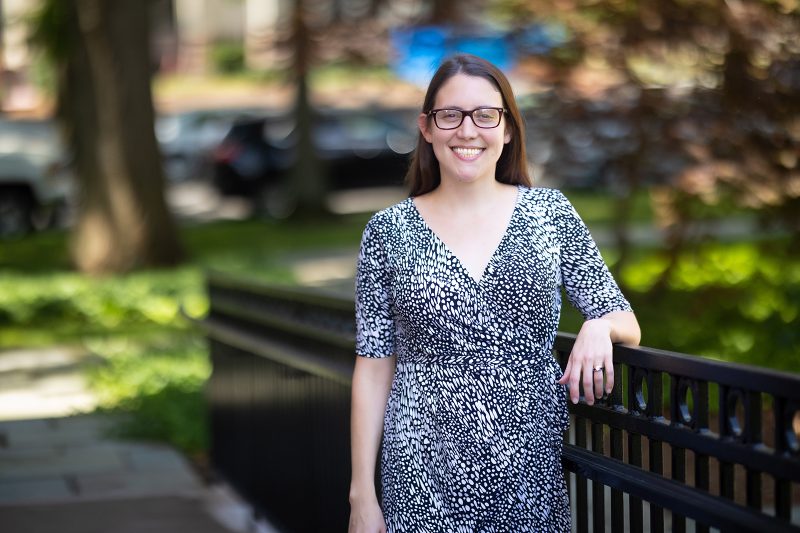When she was a college student, economist Lauren Falcao Bergquist participated in a volunteer program in Tanzania where she taught HIV prevention. While she enjoyed the experience, which galvanized her interest in East Africa, she questioned whether the program, regardless of its good intentions, was actually making a difference.
After that she wanted to better understand what sorts of interventions genuinely improve people’s lives.
Today, Bergquist works in development economics, with a focus on agricultural markets and companies in sub-Saharan Africa. In July, she joined the Department of Economics in the Faculty of Arts and Sciences with a joint appointment at the new Yale Jackson School of Global Affairs.
We caught up with her for the latest edition of Office Hours, a Q&A series that introduces newcomers to the Yale faculty to the broader university community.
How do you describe your research to people outside academia?
I’m a development economist, which means my research focuses on global poverty. A lot of my work involves trying to better understand why certain countries remain poor and then evaluating potential policy solutions to reduce poverty.
How do you evaluate potential solutions?
Much of my work uses randomized controlled trials, which is a type of experiment that originated in the medical literature. We’ll randomly assign participants into a treatment group that experiences an intervention — say, providing new textbooks to schools — and a control group that doesn’t receive the intervention. We then measure differences in outcomes, such as test scores, between the treatment and control groups to gain insights into the intervention’s impact.
For instance, I did a study in Kenya concerning a common phenomenon in developing countries where during the harvest time, food supplies are high and prices are low, but then supplies drop and prices rise during the lean season.
Farmers grow maize in Kenya, and what’s puzzling is that maize, in theory, is storable, meaning farmers should be able to hold off on selling it right after harvest and wait to sell it when prices are higher, which would provide a better return on their investment and make more maize available during the lean season.
Why were they so quick to sell their crops?
Many farmers told us that they have bills that come due at harvest time, including school fees for their kids, and their crops are their only source of cash. The program I worked on gave the farmers a loan to cover their bills so they could sell their crops when prices were higher. If enough farmers took advantage of the program and began storing their maize, we might see harvest prices go up and lean season prices come down. This would also benefit farmers who only sold in the harvest season because they’d get higher prices for their maize. It might also help the broader community because food would become less scarce during the lean season.
How did you evaluate it?
In our trial, we randomized the number of people in each village who received a loan. In some villages, lots of farmers got the loan. In others, just a few. We found farmers who got the loan began to store more of their crops to sell later and saw significant returns on their investment. We also found that in villages where a lot of people got loans, prices began to smooth from harvest season to the lean season, which has the effect of helping farmers who did not receive the loan through higher prices at harvest time and lower prices in the lean season.
What attracted you to Yale?
There are a lot of folks here thinking about what happens when programs like the one I just described are scaled up. For example, Mushfiq Mobarak, who has appointments in the Department of Economics and School of Management, started a center called Y-Rise specifically to study questions related to expanding interventions that have been demonstrated to work at a smaller scale. Also, there is just a ton of brilliant development economists here affiliated with the Economic Growth Center. Yale is a hub of this style of economics research.
What excites you about your role at the Jackson School?
My work is geared towards influencing policy, so I’m happy to be in a place that takes policy seriously. The faculty cares about the impact of policies. There are practitioners who have actively engaged in policy. There are master’s students who have experience working on policy. I love teaching folks who have worked in the field and can tell me, “No, that’s your theory, but it’s not how it’s done in practice.” It creates a richer learning environment for the students and helps me learn new things.
